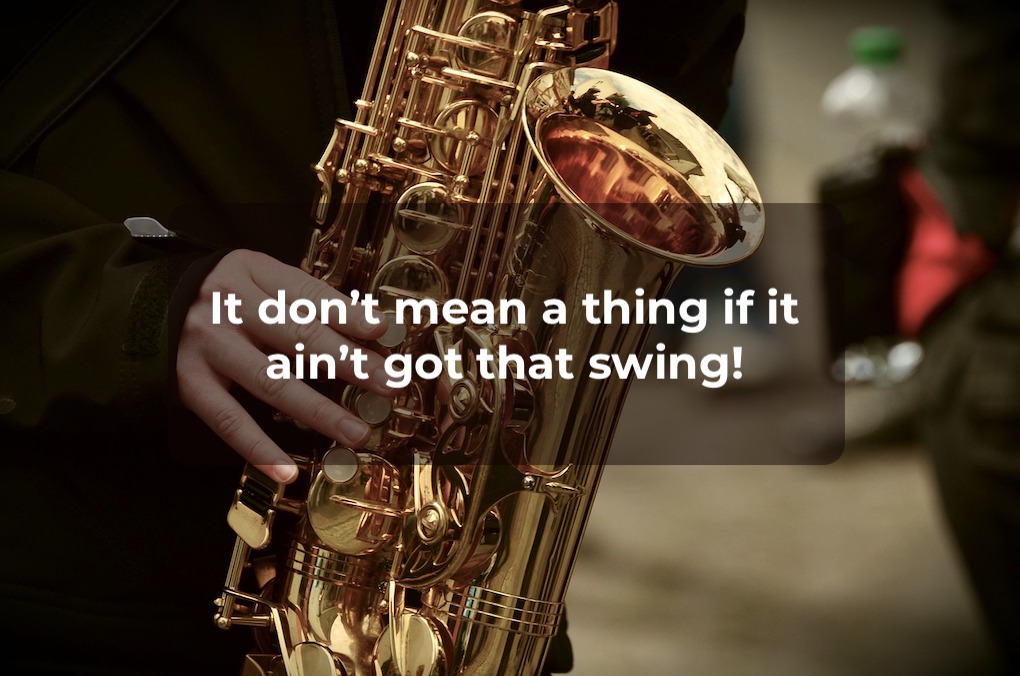- in Production by Bobby Owsinski
Physicists Have Unraveled The Secret To Swing
“It don’t mean a thing if it ain’t got that swing,” as the song goes, and that can certainly apply to a lot of music made by real players and not computers. Although musicians know it when they hear or feel it, it’s been really hard to explain swing scientifically. But never underestimate science, especially sax-playing physicists, as they’ve worked hard to unravel exactly what “swing” is in regards to jazz.

Professor Theo Geisel is a retired physicist who plied his trade at the highly regarded Max Planck Institute in Germany where he spent decades studying the physics of synchronization (like “how the billions of neurons in your brain coordinate with each other”). He’s also a sax player who plays in a band with other physicists. He decided to take on the task of finding out precisely what swing is.
According to a post on NPR, Geisel and his colleagues loaded jazz recordings into a DAW in order to manipulate the timing of the soloist in relation to the rhythm section. They analyzed a database with over 450 recordings of jazz soloists (you can see it here), including performances by the likes of Dizzy Gillespie, Joshua Redman and Charlie Parker in order to unlock the secret.
What they found is that almost all of them were using tiny delays of the downbeat compared to the rhythm section. In other words, wherever the 1 was for the rhythm section, the soloist would be behind by as much as 30 milliseconds. What was surprising is that these delays weren’t random, but consistent based on the players feel.
This isn’t actually anything new. When MIDI sequencers programs first came out we found that if we delayed the bass a few milliseconds, and the snare a few more milliseconds after that, we could simulate a bigger, behind-the-beat feel. This is still a good idea today, although I’d venture to say that most pop songs done today are completely on the grid.
But it does illustrate the difference between live players and computers. Computers are ridged, which can be pleasing in some ways and situations, but real players constantly vary slightly in tempo and tonality. Is it better? No, just different, but I know which one I prefer.

